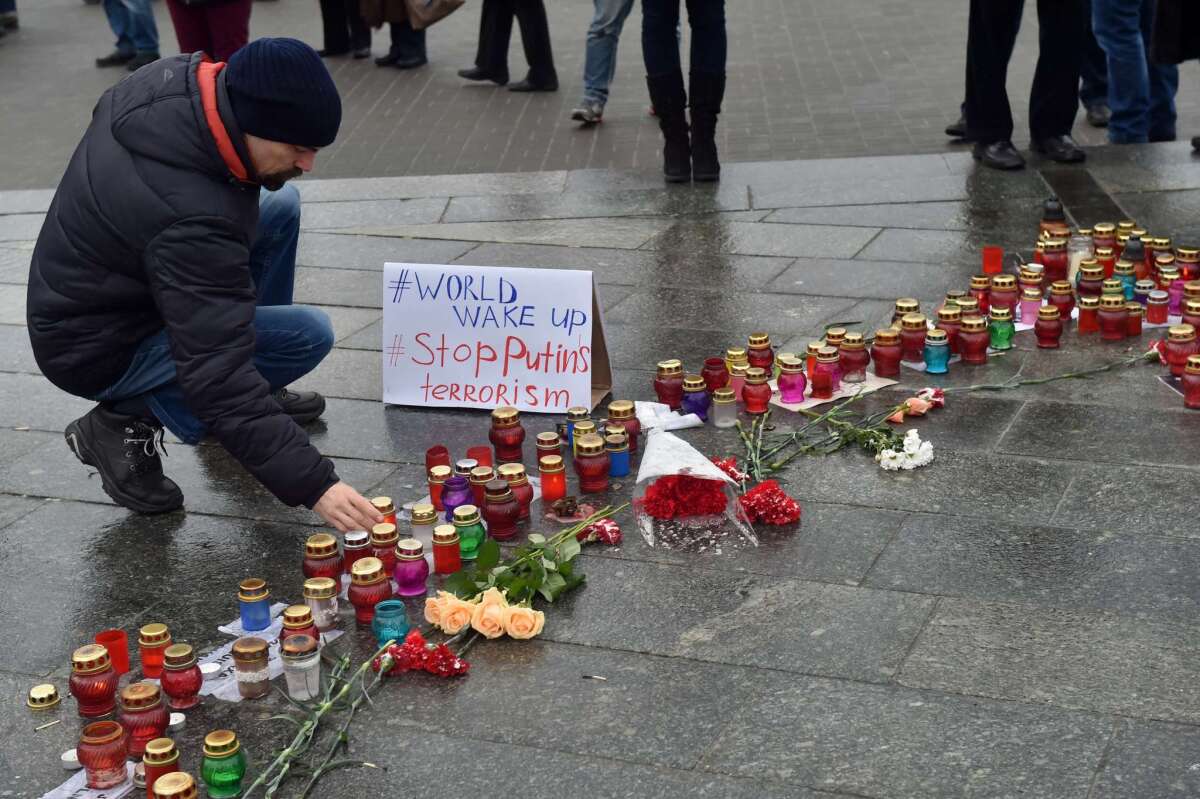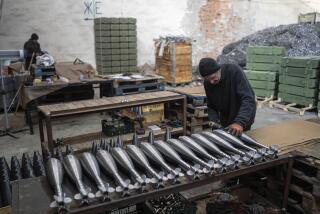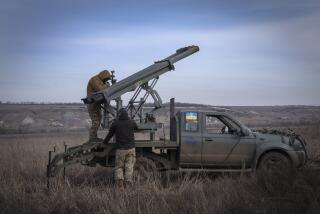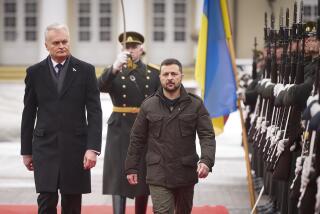Editorial: It’s time for the U.S. to give Ukraine a defensive military boost

Fearful of provoking a new Cold War with Russia, the Obama administration has for months resisted pleas that it provide weapons to the government of Ukraine. This page has supported that cautious policy, worrying that military assistance to the government in Kiev would seem to create a proxy war between the U.S. and Russia.
But the collapse of a cease-fire and recent gains by Russian-supported separatists are causing U.S. officials to question their policy of relying on economic sanctions to alter Russian behavior. There are good reasons for such a reconsideration.
Last year, Congress passed legislation authorizing (but not requiring) the president to provide arms to Ukraine. On Monday, a group of former U.S. officials — including Michele Flournoy, undersecretary of Defense in Obama’s first term — recommended that the U.S. supply Ukraine with $3 billion in defensive equipment, including anti-armor missiles, reconnaissance drones and advanced radar systems. The purpose of the aid would be twofold: to deter further Russian military action “in or against Ukraine” and to make it clear that “the West will not accept the use of force to change borders in Europe.”
In their report, the former officials noted that Russia’s actions in Ukraine — including its annexation of Crimea — violated a 1994 agreement in which Russia (along with the U.S. and Britain) promised to respect Ukraine’s sovereignty, independence and territorial integrity and not threaten it with force. The report warned that success in Ukraine might tempt Russian President Vladimir Putin to seek territorial changes in Latvia, Lithuania and Estonia, former Soviet republics, now members of NATO, that also have sizable Russian and Russian-speaking populations.
There is no guarantee that arming Ukraine will succeed in persuading Putin to change course, but we believe the administration should make the effort. In doing so, however, the administration must strive to preserve a united front on economic sanctions with European nations such as Germany that choose not to provide military aid. It also should continue to encourage negotiations on the political future of Ukraine.
Finally, the U.S. must emphasize why it is acting: not to move a pawn on what Obama once called a “Cold War chessboard” but to support the independence and territorial integrity of Ukraine and every other nation in Europe. If Russia wants a respectful hearing for its views about the future of Russian-speaking Ukrainians, it will commit itself to the same principles.
Follow the Opinion section on Twitter @latimesopinion and Facebook
More to Read
Start your day right
Sign up for Essential California for news, features and recommendations from the L.A. Times and beyond in your inbox six days a week.
You may occasionally receive promotional content from the Los Angeles Times.





